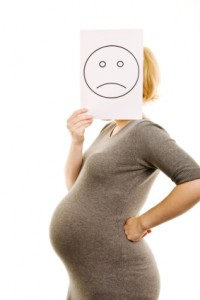Avoiding Hemorrhoids During Pregnancy
Hemorrhoids are a condition that many women develop during pregnancy. The reasons for this are simple. Hemorrhoids occur when prolonged pressure is put on the veins in the anal and rectal areas. Pregnancy, specifically the weight of the developing fetus, strains these veins to the point that they can turn into hemroids. This is particularly true during the third trimester of pregnancy, when the fetus reaches its maximum weight.
In addition to the weight of the fetus, other factors which occur specifically during pregnancy can contribute to the development of hemroids. Hormonal changes, such as the increased production of progesterone, can soften and weaken the walls of the veins, thus making it easier for hemorrhoids to develop. Additionally, the constipation that occurs frequently in pregnant women can cause stress and straining during bowel movements and can therefore lead to hemorrhoids.
When hemroids do develop in pregnant women, most will experience itching or even pain. Sometimes the hemorrhoid is visible and looks like a large mass of inflamed tissue resembling a blister. Some women may even experience bleeding hemorrhoids when the tissue lacerates. Furthermore, varicose veins, a vein disorder condition similar in nature to hemroids may occur and be visible in the legs.
Treating Hemorrhoids in Pregnancy
There are a number of different treatment approaches that can be taken to combat hemroids in pregnant women. First and foremost, it is essential to adopt a diet rich in fiber and fluids, as that will help improve overall bowel health and prevent the constipation that so often leads to hemroids. Drinking a cup of prune juice every day is one simple and effective way to ensure that your bowels stay healthy during pregnancy.
Many pregnant women also turn to Sitz baths, where they sit in warm water to soak the anal area. Sitz baths have proven very effective at relaxing the anal area and providing relief from the irritation and pain that typify hemroids. Cold compresses or ice packs can have a similar soothing effect and are used by many pregnant women to reduce the swelling and accompanying pain that hemorrhoids bring.
Many pregnant women have also reported successfully treating their hemroids with hemorrhoids pads, but this particular hemroids treatment method should be approached with caution. Many hemroids pads contain witch hazel, a natural astringent which can relieve swelling and inflammation, but some pregnant women report that the pads actually further irritate their hemroids. As with all remedies taken during pregnancy, you should consult your doctor before using hemorrhoids pads to treat your condition.
Finally, kegel exercises, the exercises that strengthen the muscles in the vaginal and anal areas, can actually help prevent hemorrhoids during pregnancy. In addition to strengthening your muscles, kegel exercises can actually improve circulation in your anal area, thus making it less likely for blood to pool and swelling to occur which leads to hemroids. Kegel exercises can also specifically strengthen the muscles which support the rectum, and stronger tissue in that area is also a deterrent to developing hemroids.
While it may be disheartening to develop hemorrhoids during pregnancy, it is quite common and not a serious health threat to the baby or the mother. Even so, it is important to seek diagnosis and treatment at the first sign of hemorrhoids to ensure that they do not develop into more serious and uncomfortable symptoms.
